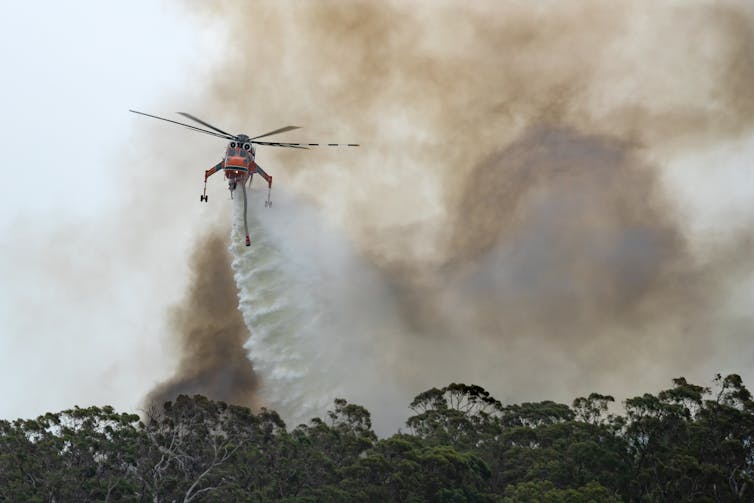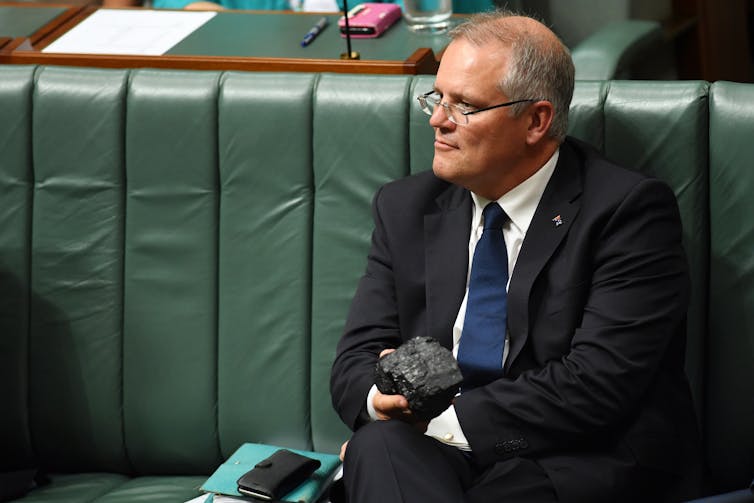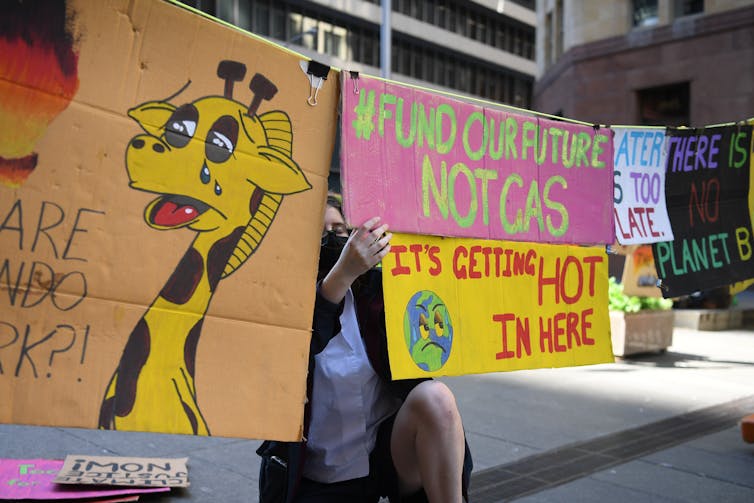Source: The Conversation (Au and NZ) – By Rebecca Colvin, Lecturer, Crawford School of Public Policy, Australian National University
We will remember 2020 as a year of crisis. COVID-19 hit Australia just as we were beginning to make sense of the horror bushfires and smoke of last summer, a sinister illustration of global warming’s threats.
Since then, the news media has given centre stage to COVID-19 and its cascading impacts on society, shifting climate change to a relatively minor role in our narrative of this year’s crises. So, have Australians forgotten about the urgency of climate change?
No. Polling released today by The Australia Institute shows climate change and its impacts remain a prominent concern to Australians, even amid the upheaval and uncertainty wrought by COVID-19.

82% of Aussies worry about climate-driven bushfires
The Climate of the Nation report has tracked Australian attitudes to climate change for more than a decade.
This year, it polled 1,998 Australians aged 18 and over, and found the vast majority (79%) hold views in line with the best available scientific evidence. That is, four in five Australians agree climate change is occurring. This is the highest result since 2012.An even greater majority, 82%, is worried climate change will result in more bushfires, up from 76% in last year’s report. This is perhaps unsurprising, given the record-breaking fires of last summer and the threat of longer and more ferocious fire seasons.
The bushfire royal commission is due to release its report today, and will likely highlight climate change as an amplifier of bushfire risk. This was foreshadowed in the commission’s interim observations in August.
Read more: New UN report outlines ‘urgent, transformational’ change needed to hold global warming to 1.5°C
The report also showed Australians believe the post-pandemic economic recovery is not a time to further entrench fossil fuels. Only 12% of Australians want to see Australia’s economic recovery led by investment in gas, a plan the Morrison government is set on carrying out.
In contrast, a majority (59%) would like to see the recovery driven by renewables.
Australia: an international laggard
The level of scientific consensus on climate change is remarkable. Urgent action on climate change is recommended by scientists and desired by the overwhelming majority of the public. Yet, Australia remains an international laggard in this area.
The Climate Change Performance Index evaluates 57 countries plus the European Union, which together are responsible for more than 90% of global emissions. This year, Australia ranked last on climate policy.
The reasons include Australia’s absence from the UN Climate Action Summit in 2019, and withdrawal of contributions to international climate funding programs.

For many years, denial, delay and division over climate change was the norm in Australian politics. This is still the case among some media and political elites, and is no more pronounced than in debates over the future of coal in the domestic energy mix and for export.
Our energy sources play a big role in our overall contribution to climate change, with electricity generation contributing 32.7% of Australia’s emissions.
For everyday Australians, the solution is clear. The Climate of the Nation report shows the vast majority (83%) want to see coal-fired power stations phased out. Some 65% want the Australian government to stop new coal mines from being developed.
Toxic politics limit constructive conversations
For many, particularly those living in Australia’s coal production regions, the prospect of shifting from coal to renewables raises legitimate concerns about their futures.
However, the ability for people and policy to engage constructively with concerns over jobs and climate is limited by toxic politics.
An important culprit is the pervasive “us versus them” narrative that dominates political and media discourse. The narrative repeatedly – but erroneously – signals to people in coal production regions that the rest of the country doesn’t care about them.
Read more: Our social identity shapes how we feel about the Adani mine – and it makes the energy wars worse
Coal production is also pitted against climate action in the “climate versus jobs” debate. But the polling shows such binaries are false: most Australians do care what happens in coal production regions. In fact, three-quarters of Australians want governments to plans and manage an orderly shift from coal to renewables.
The Australian people, by a large majority, care for those living in coal production communities and want to secure a safe climate.
68% of Aussies support an ambitious climate target
Australians recognise our country can make a disproportionately large and positive contribution to international efforts to mitigate climate change.

Seventy-one percent want Australia to be a global leader in finding solutions to climate change, while 77% recognise tackling climate change can create opportunities for new jobs and investment in clean energy.
While all Australian states and territories have committed to net-zero emissions by 2050 or sooner, the federal government has not. But, once again, a majority of people would like to see otherwise: 68% support a net-zero by 2050 target for Australia. This is four percentage points higher than last year.
If we don’t implement meaningful and ambitious climate policy, Australia risks becoming even more of a climate outlier in the international community than we already are.
The Climate of the Nation results clearly shows this goes against the will of the Australian people. Australia has a voting base that will support and reward ambitious climate action. Now is the time for political leaders to reflect this in the nation’s climate policy.
Read more: Under Biden, the US would no longer be a climate pariah – and that leaves Scott Morrison exposed
– ref. New polling shows 79% of Aussies care about climate change. So why doesn’t the government listen? – https://theconversation.com/new-polling-shows-79-of-aussies-care-about-climate-change-so-why-doesnt-the-government-listen-148726




